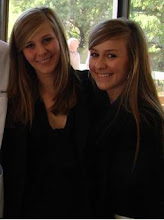Tuesday, March 9, 2010
The Power of Love
I recognize that not all children may be loved by their parents but Lowry argues that love from a parent is not the only form of love that a child can learn from and model off of. Readers follow Jonas through his questioning of his parents' love for him and their refusal to answer a concept that does not qualify as "precise language" (127). Now aware of what love feels like and how it should be exemplified in a family dynamic, Jonas is crushed by his parents response. I think most people would agree that the thought of having a parent(s) refuse to express their love for you is devestating. It is after this conversation that Jonas realizes he is not part of a 'loving' family. Desperately searching for the love he so badly wants to feel and give to others, Jonas forms a very strong relationship with Gabe.
It is through his relationship with Gabe that Jonas understands what love is and the lengths that people will go to for those that they love. Lowry's portrayal of a family love that does not fit a mold of the cookie cutter family (mom, dad, son, daughter) is similar to that of Park's in A Single Shard. Tree Ear learns, understands and demonstrates true family love through his relationship with Crane Man. Park and Lowry both make the point that to know and understand love only takes one person. It does not have to be a parent or family member but someone that an individual feels that warm fuzzy feeling or constant happiness aroused within themselves. In choosing to release all of the memories into the community, Jonas represents one of my favorite quotes - "The most important thing in life is to learn how to give out love, and to let it come in."
Tuesday, March 2, 2010
Life: A Journey with Obstacles
Life is two things, an obstacle and a journey. These two things undoubtedly lie at the center of Linda Sue Park's A Single Shard. It is through Tree-Ear's relationships and experiences that a true portrayal of "life" is exhibited in a very meaningful and inspirational way for children. As we have read and discussed the idea of a parentless child/hero, it is through Tree-Ear's character that the idea of a hero is seen in the purest and most genuine form. While Tree-Ear does not face the same types of dilemmas and struggles of a typical twenty-first century child, the lessons he learns and the harsh realities he must accept are perfect models for children to be able to relate to.
There is no question that Tree-Ear's life has many obstacles. However, these obstacles are presented as just that- obstacles. Tree-Ear does not view setbacks or disadvantages (being an orphan, living under a bridge, having no guarantee of a meal, etc.) as barriers in the progression for a better life. Rather, Tree-Ear takes every obstacle he faces as something that can bring the smallest ounce of happiness or positive component to his life. The living conditions and lack of food are a constant battle that Tree-Ear describes but always made out to be "ok" whether because of hard work with Min or the fatherly relationship he has from/with Crane-man. The work with Min proves to be his biggest obstacle as Min is very cold and unappreciative of Tree-Ear's hard work for so long. The depiction of such obstacles to be taken as character building rather than character preventing, for lack of a better word, is the argument Park's is making about how children should handle their own obstacles and struggles. Projecting onto children the idea of a positive, mature outlook is the ideal way literature should strive to influence young readers.
The idea of life as a journey is exemplified through Tree-Ear's physical journey to Songdo along with a personal journey within. The incorporation of a young child going on a journey through children's literature is, like the presentation of universal obstacles that every child faces, something that Park's touches on successfully. Tree-Ear's journey is one not pre-destined like other heroes we have read about but one that centers of a young boy accepting an obstacle in hopes of helping others. It is through Tree-Ear's journey's that a true hero is born. Park's honest depiction of real "life" is a breath of fresh air. Of all of the books we have read so far, A Single Shard is the closest to an ideal model of lessons that children of today should look to for answers.
